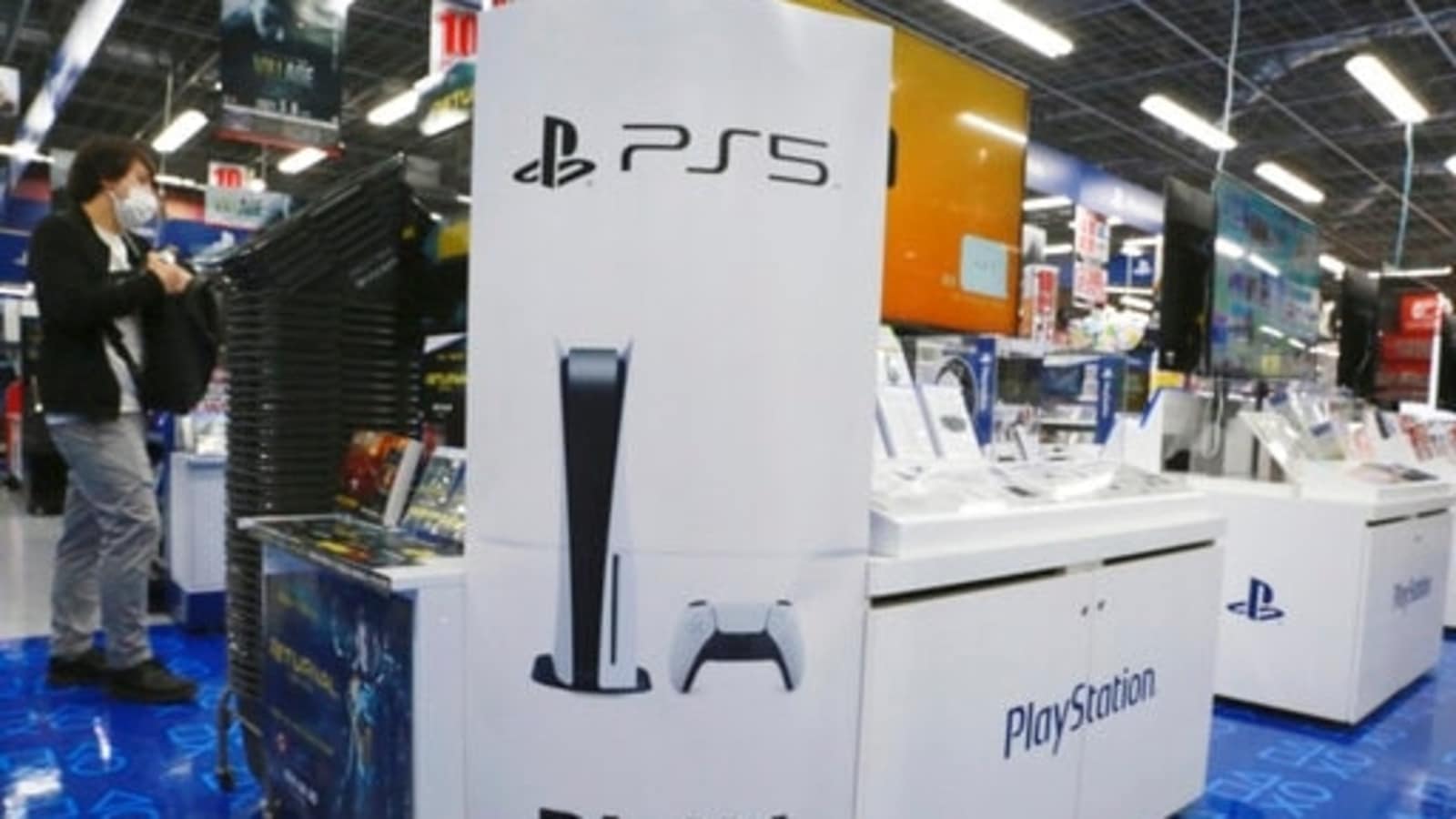Looks Like We're Nearing Peak PlayStation
Layoffs at Sony, a radical strategy at Microsoft, and no new Switch from Nintendo show that the entire industry is struggling with the increasing cost of game development.

It should have been a victorious few weeks for Sony Group Corp.'s PlayStation 5. Final Fantasy VII Rebirth, arguably the console's first must-have exclusive title, has been released to rave reviews. Microsoft Corp. has just announced it will allow games previously exclusive to its Xbox machine on rival platforms, tantamount to an admission of defeat in the console wars. And reports swirled that a successor to Nintendo Co.'s Switch is still more than a year away.
Instead, the noises coming from Sony sound more like a company that's struggling. After a surprise declaration at its recent earnings that the PS5 had all but peaked — with hardware sales set to “gradually decline” next year as the three-year-old console enters its “latter stages” — the company is cutting some 900 jobs worldwide in its gaming division, and shutting down several titles in production.
Worse for gamers, the firm admitted that the PS5 will see no new major first-party titles until at least April 2025 (Final Fantasy is published by Square Enix Holdings Co.). Thanks to the time-warping effect of the pandemic, the PS5 still feels new, but it's already at a point where it should be hitting its prime.
The Japanese firm is merely suffering from a problem that plagues the entire industry: Development cycles and budgets are out of control. Final Fantasy VII itself is the perfect example. The original game, released on the PlayStation back in 1997, had a reported spend of around $40 million, a huge amount at the time, and took a little over a year to pull together. The remake is so colossal it's been split into three separate games, of which Rebirth is the second chapter. One estimate put the budget for the first chapter, which was released four years ago, at $140 million.
It's not sustainable. And Sony President and Chief Financial Officer Hiroki Totoki has signaled he wants to rein in costs. He recently took direct control of the gaming division on an interim basis, bringing power back to the firm's Japanese base after several years of being headed by Englishman Jim Ryan.
And it sounds very much like Totoki didn't like what he's seen. He told reporters that first-party studios needed to better understand profit generation and improve their expenses. Combined with the layoffs and closure of Sony's London studio, the message seems clear: The company is getting too little bang for its buck, with one of its most high-profile studios having only made one new game in the last eight years.
It's a similar story at Nintendo. Multiple reports say that the successor to the Switch, which had been expected to hit shelves this year, won't be released any earlier than March 2025. According to the Nikkei newspaper, the Mario maker wants to give developers more time to create software — and with around 80% of its software revenue coming from titles developed in-house, that means games Nintendo makes itself.
The time needed to make a high-quality title has ballooned. A decade ago, a typical AAA game would usually take about three years to make. Now, it's not uncommon for firms to need twice that. Six years passed between the release of Legend of Zelda: Breath of the Wild and its sequel, Tears of the Kingdom. The last mainstream 3D Mario game came out in 2017. There hasn't been a new Mario Kart in a decade. The expanded specs expected on the Switch's successor will make these development cycles even more arduous.
Microsoft faces the same problem, but its coping strategy is more unusual: The firm is choosing to release games previously only available on its Xbox hardware, including the critically acclaimed Hi-Fi Rush, on Sony and Nintendo's platforms. Gamers loyal to the brand are up in arms, but Microsoft seems to be moving away from the idea of exclusives entirely. It has pledged to make Call of Duty, which it acquired with its purchase of Activision Blizzard, available on rival machines.
It's not hard to understand why. Budgets are ballooning; publishers tend not to reveal figures, but leaks from Sony's Insomniac studio last year suggested its Spider-Man 2 had a budget of some $300 million. While that title was a hit, there are many that aren't. Square Enix's Forspoken had a AAA budget, but ended up with sales the Japanese firm described as “lackluster”; executives from Warner Bros. Discovery Inc. recently said its big-budget Suicide Squad: Kill the Justice League, in development since 2017, had “fallen short of our expectations.”
Publishers have been trying out higher price points but gamers don't like it, and have been trained to learn that prices will quickly plummet when they're put on sale. Capcom Co. President Haruhiro Tsujimoto summed it up last year when he complained in an interview that games were too cheap, noting that while budgets have gone up 100-fold since the era of the Nintendo Entertainment System in the mid-1980s, the price has hardly risen at all.
Higher budgets are also making companies more risk adverse, reducing the diversity of software — and making many titles seem rather same-y. Every studio seems to want a “live-service,” one that can be monetized in perpetuity, but few succeed. The flip side is that gamers are turning to unexpected titles — see the success of 2023's Baldur's Gate 3 or recent indie sensation Palworld — further muddying the waters for what developers should actually make.
Recent rounds of layoffs reflect the fact that resources needed for game development fluctuate. Hundreds of people are needed during the crunch phase, but just a fraction of that in the early prototype phases. The era of free money also encouraged developers to recruit like tech firms, but having all those resources in-house — when the average salary in US game development is above $100,000 — isn't sustainable(1).
In coming years, AI might help with some of the heavy lifting of asset generation, though gamers are skeptical of machine-generated art. But ultimately, this is an industry going through growing pains, and still in search of the right business model. Developers, and gamers, should prepare for some rocky years ahead.
Gearoid Reidy is a Bloomberg Opinion columnist covering Japan and the Koreas. He previously led the breaking news team in North Asia, and was the Tokyo deputy bureau chief.
One more thing! We are now on WhatsApp Channels! Follow us there so you never miss any updates from the world of technology. To follow the HT Tech channel on WhatsApp, click here to join now!
Catch all the Latest Tech News, Mobile News, Laptop News, Gaming news, Wearables News , How To News, also keep up with us on Whatsapp channel,Twitter, Facebook, Google News, and Instagram. For our latest videos, subscribe to our YouTube channel.
































